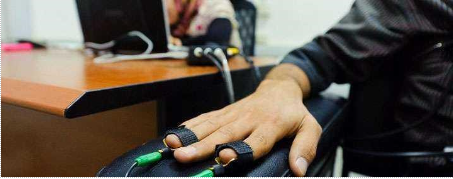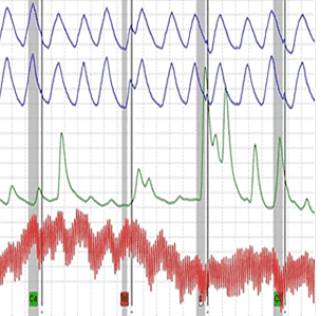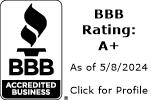When you’ve put up a job ad for a new opening in your organization, you expect all applicants to be truthful in their resumes. However, some candidates will deploy every gimmick in the book to gain an unfair advantage. One way to weed out potentially deceitful job applicants is by subjecting them to a polygraph exam.
Lie detector tests have become a critical part of recruitment processes in many organizations worldwide. Job applicants are subjected to a series of polygraph questions, usually to impeach or corroborate stated claims.
Besides helping in pre-employment screening, lie detector tests may also be administered to investigate criminal incidents or misconduct at the workplace.
Industry Adoption and Legal Landscape

The polygraph test has long been used in law enforcement to interrogate suspects, witnesses, and other parties to a case. However, the tests have since permeated many other industries, including:
- Security companies
- Military
- Armored car services
- Pharmaceutical sales
- Power generating companies
- Other government agencies
Despite their adoption in many industries, lie detector tests operate under stringent regulatory controls worldwide.
In the United States, most of the following government agencies subject their prospective employees to lie detector tests:
- FBI
- CIA
- DEA
- DOD
The evaluations are typically conducted by polygraphers trained by individual agencies and are primarily intended to exclude candidates with criminal backgrounds, drug trafficking history, and affiliations with terrorist networks.
However, the Employee Polygraph Protection Act (EPPA) protects private-sector employees from undertaking mandatory polygraph exams, whether as part of pre-employment screening or during routine workplace investigations. Besides, over 10 states (including California and New Jersey) categorically prohibit employment polygraphs.
If such tests must be administered, the employer and employee must willfully consent to them. Besides, polygraph results cannot be used as the sole evidence of deception.

Effectiveness and Reliability
There are mixed feelings about the accuracy of polygraph exams in detecting deception in the workplace. Proponents hold that lie detector tests can help weed out shady job applicants, protecting an organization’s reputation.
In a case study published by the American Polygraph Association (APA), researchers noted that pre-employment polygraph screening was up to 83% accurate with deception and 96% accurate with truthfulness. These findings present a valid argument for integrating lie detector tests into pre-employee screening.
Another case study published on the Office of Justice Programs (OJP) website corroborates the reliability of polygraphs for screening job seekers. In this experiment, researchers established that innocent people do not necessarily respond to relevant questions, as many polygraph critics aver. While one of the investigated cases was inconclusive, most findings vouch for the reliability of lie detector tests.
However, skeptics take issue with the fact that many job seekers tend to be nervous during interviews. While sheer nervousness doesn’t impact polygraph outcomes directly, intense anxiety can arouse the autonomic nervous system (ANS) – the very system that regulates the physiological responses associated with deception.
Besides, some jobseekers may deploy countermeasures to beat lie detector tests. Unless the exams are conducted by experienced polygraphers using proper methodologies, there’s a decent chance of false negatives.
Additional Practices
Many pre-employment screening methods today utilize artificial intelligence (AI) to sift through volumes of jobseekers based on their relevance for the advertised position. AI also enables recruiters to automate certain aspects of the screening process and, more importantly, gain insightful data into a candidate’s credibility and performance.
Besides AI, some hiring managers deploy video interviews and gamifications.
Recruiters can use video-based interviews and gamifications to evaluate critical soft skills, such as communication and problem-solving. The two techniques also provide an interactive platform that fosters free expression, allowing recruiters to pick vital cues of dishonesty among job seekers.
Some critics further aver that polygraph exams infringe upon the examinees’ civil liberties and that the questions asked may have far-reaching psychological impacts. Not to mention the fact that the accuracy of lie detector tests is, itself, a matter of contention.

The Future of Polygraphs in Hiring Practices
Despite mixed opinions on the use of polygraph exams in hiring processes, the future points to the widespread adoption of lie detector tests in the corporate sector.
To allay ethical concerns surrounding polygraph usage, hiring managers will integrate their lie detector machines with advanced technologies like artificial intelligence and machine learning (ML).
AI-powered polygraphs will automate repetitive tasks, allowing recruiters to focus on judgment-based assessments.
We’re also set to see a renewed interest in psychometric tests as recruiters seek to understand the behaviors and intelligence levels of job candidates. Integrating smart technologies like AI into psychometric evaluations will mark a significant step towards conducting legally defensible pre-employment screening interviews.

Interrogating the Reliability of Polygraphs in Recruitment Processes
Polygraph testing in employee screening can help detect deception in jobseekers, saving a company from hiring incompetent or morally questionable individuals. Although lie detector tests have their limitations, evaluations conducted by accredited examiners can produce remarkably high accuracy scores.
To enhance fairness and accuracy in hiring, the examinees must unequivocally consent to being polygraphed. Besides, lie detector findings should only be used to impeach or corroborate other theories or suspicions.






